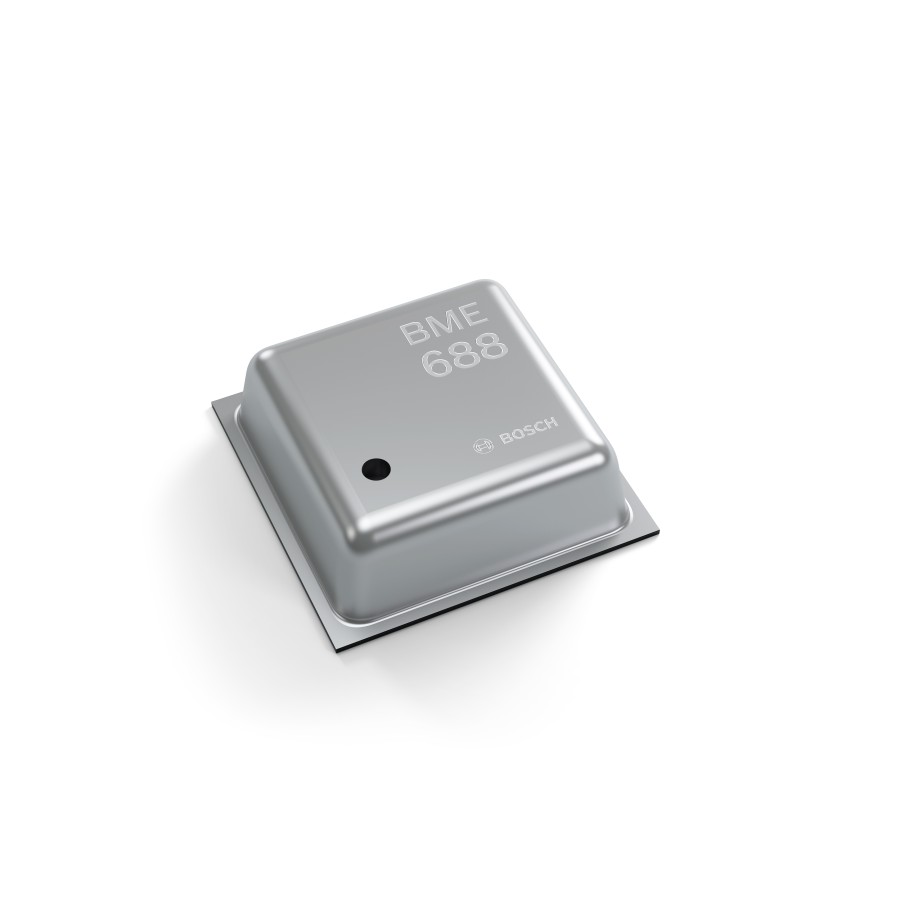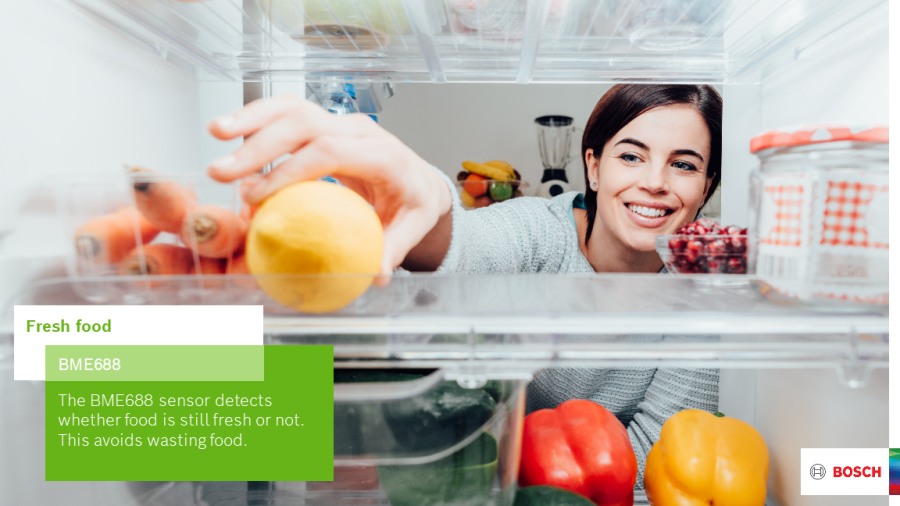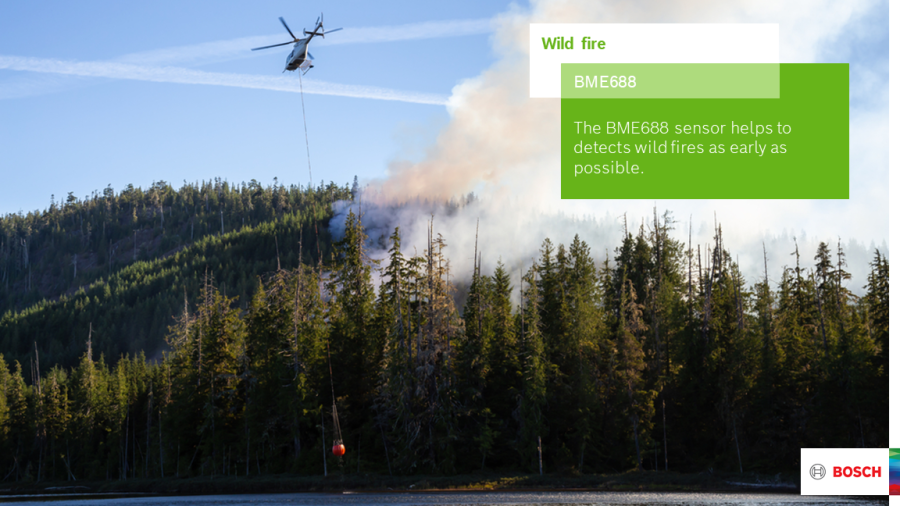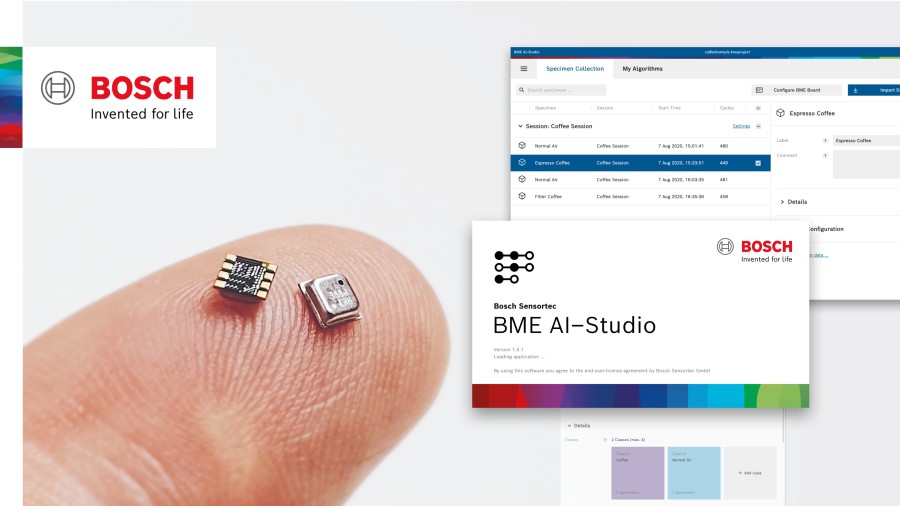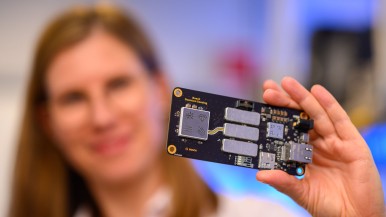Whether at home, in the office or outdoors, we need to be confident that the air around us is clean and safe to breathe – COVID-19 has clearly highlighted the importance of air quality. Due to the particulates, gases and even airborne viruses ubiquitously present in our modern environment, poor air quality has an increasingly negative impact on our health and well-being.
To address this growing need, Bosch Sensortec has announced the BME688, the first air quality MEMS sensor that combines gas, humidity, temperature and barometric pressure sensing with innovative artificial intelligence (AI) capability; essentially creating the world’s smallest four-in-one air quality measurement solution. This single device enables customers to reduce their total cost of ownership, cut their development time and simplify design.
The new BME688 is ideal for the latest, customized applications, such as food spoilage detection and timely forest fire detection by detecting the gases present, and tracking temperature and humidity changes. The sensor's AI features and Bosch Sensortec’s new BME AI-Studio software tool make it straightforward for customers to rapidly develop custom solutions for their specific use cases. To further cut time to market, Bosch Sensortec also provides an Adafruit-compatible development kit.
Built on Bosch Sensortec’s proven BME680 platform, the BME688 features an updated gas sensor enabling an extended measurement range and sophisticated AI features. The gas sensor now detects the presence of many gases, including volatile organic compounds (VOCs), volatile sulfur compounds (VSCs) and other gas types such as carbon monoxide and hydrogen, in the parts per billion (ppb) range.
"The BME688 combines reliable high-precision sensors with wide-ranging gas detection and innovative AI capabilities in a single package,” says Dr. Stefan Finkbeiner, CEO at Bosch Sensortec. “This enables our customers to rapidly develop the next generation of applications designed to improve well-being, lifestyle and sustainability.”
For example, a customer may want to develop a sensor-based product that can detect spoiled food, which would be indicated by the VSCs produced by bacteria in the food. Similarly, bad breath or body odor could be detected based on the VSCs they produce.
The optimal approach is to collect indicative real-life data directly in the field. For instance by sampling gases in the vicinity of both fresh and decaying food, to thereby create different combination models for the VSCs present in the given air sample. The BME688 is capable, by default, of very accurate detection of VSCs, and the BME AI-Studio enables it to be optimized for other gas mixtures and applications.
By sampling gases in the field instead of the lab, the derived algorithms that are utilized by the new detection devices are far more reliable in evaluating actual conditions. Together with gas data, the BME688 simultaneously measures humidity, barometric pressure and temperature as supplementary data inputs for complete AI modeling.
In our example application, the customer categorizes this mass of data and then applies it in the development of their AI model in the BME AI-Studio, essentially training the BME688 to recognize the tell-tale signs of bacterial growth on the food. Once the sensor is trained, the final AI code runs on a system microcontroller in the customer’s end product. This AI code is generally lightweight and will run quite easily on the existing microcontroller that handles system control and management tasks.
The BME688 has been developed for mobile and connected applications where size and low power consumption play a critical role. The sensor is housed in a compact package, measuring just 3.0 x 3.0 x 0.9 mm3. Current consumption can be configured between 2.1 μA and 11 mA depending on the required data rates and functions, and can be optimized using the BME AI-Studio.
Availability:
The BME688 is available now.
Website:
https://www.bosch-sensortec.com/products/environmental-sensors/gassensors/bme688/
Video:
https://www.youtube.com/watch?v=xcZKKNrBt2g




